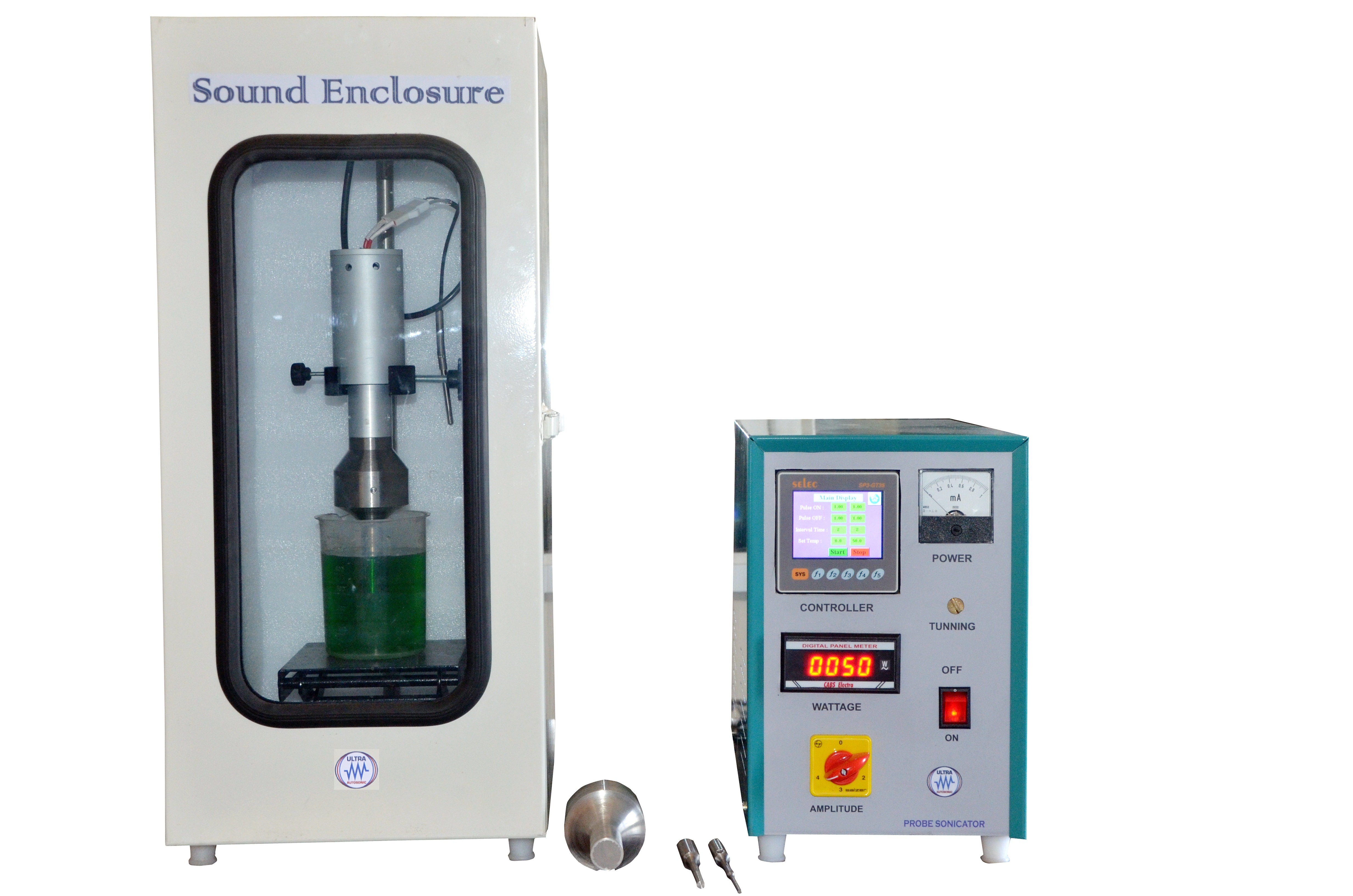Applications of Probe Sonicator Environmental : A Sonicator can help to treat sediment and soil samples efficiently in an environmental testing lab, with a sonification of eight to ten minutes per sample. This protocol is more convenient and easier than the traditional sox let extraction process, which involves repeatedly wash solids into a flask using glassware and solvents for four to eighteen hours. Biological : DNA, RNA, protein and cellular components can be extracted through breaking up bacteria, tissue cells and yeast by a Sonicator. The high- strength ultrasound waves can expand and contract the liquid around the sample and produce bursting bubbles, which help to pull adjacent molecules away from each other and create sheering forces to tear apart the bimolecular. Industrial : A Sonicator can be used to decrease the particle size of a material, speed up reactions, extract compounds, and produce emulsions in industry. For example, sonification can help to disperse inks and dyes in painting industry; it can also help to produce dense castings in ceramics industry. Chemical : A Sonicator helps to speed up chemical reactions, allowing researchers to synthesize catalysts and prepare new alloys. When used in the hydrolysis of esters or microencapsulate proteins, sonification process gives the benefits of low energy, high yields and efficiency. For more info Please visit our Web: www.ultraautosonicindia.com, www.ultraauosonic.co.in

This is your website preview.
Currently it only shows your basic business info. Start adding relevant business details such as description, images and products or services to gain your customers attention by using Boost 360 android app / iOS App / web portal.


Submit Your Enquiry